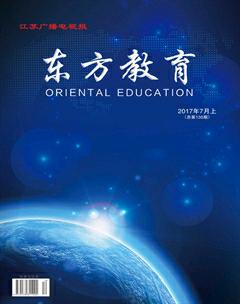On Premier Zhou Enlai's Contributions to China's Foreign Language Education (1966—1976)
叶琳怡
1. Background: Calls and Catastrophe
Chinas schism with the USSR in the early 1960s pushed China to expand its diplomatic relations with other countries in the worldly sending aid while making more efforts in domestic economic development.
In 1970, Italy, Canada, Chile established diplomatic relations with China, followed by Austria, Belgium and other 15 countries in the next year. Also, China was admitted to the United Nations with permanent membership of the Security Council. Most prominently, in the same year, US President Nixons visit to China and the jointly-published Sino-US Shanghai Communique marked the thawing of Sino-US relationship.(Hu Wenzhong, 2009)
All the aforementioned development of international political cooperation called for a large pool of foreign language talents. But the catastrofic Cultrual Revolution broke out and greatly hampered the further development of foreign language education in China. But Premier Zhou survived the purges of other top officials and stood still to encounter Cultural Revolution fearlessly and protect the fledgling foreign language education ceaselessly.
2. Against Left-leaning Ideas
The radical ten-year Cultural Revolutionthat featured a witch-hunt of anti-communists brought education at every level to a halt, undoing any progress that had resulted from a few good prior decisions.It saw the official removal of English from almost all aspects of public life.(Liu Yeting, 2015)
It was under the protection of Premier Zhou that many Foreign Language Departments resumed to enroll new students and promoted foreign language education under that severe situation.
Confronting the problem that all intellectuals and graduates were forced to go to countryside to receive education again, he clearly stated that it was really necessary for those intellectuals to receive education for a second time but it shouldn't block the overall education development.(Chen Yin, 2015)
Later, on April 22, 1971, at the meeting with national publication faculties, he reinforced that the biggest flaw in publication work was the lack of history books and geography books.
As the teaching materials were so short of everyday English that Premier Zhou suggested a balance in teaching of both political and everyday English in Higher Education. When scanned, the proportion of political message in the textbooks exceeded 90% and was still quite higheven during 1961-1965, when more focus was on economic development. But one principle was explicit all the time that never should we surrender to the left-leaning ideas.endprint
3. Against Cultural Despotism
During the Cultural Revolution, two counter-revolutionary groups incited Red Guards and the Rebels to block almost all the libraries. No science-oriented or culture-oriented books can be published or lent. On the contrary, the Little Red Book was printed and medal of leaders was forged on a binge.
At this very moment —— March 2, 1969, Premier Zhou delivered a serious criticism at the forum of national planning work, saying ‘the Little red has been issued over 700 million and the medal of President Mao over 2.2 billion. How much metals on earth have been wasted on this. Some are addicted to be engaged in feudal class, bourgeois style. But still, we unwaveringly insisted thrift.
4. Promoting a Better Command of Basic Skills
From July 13 to July 20 in 1970, Premier Zhou attended four consecutive symposiums concerning the reform of foreign language education with teachers and students from Beijing Foreign Studies University.
During the symposiums, Premier Zhou paid particular emphasis on three basic skills, including political thoughts, language itself and various cultural knowledge.
More specifically, students were supposed to master the pronunciation, vocabulary and grammar. At the same time, students were expected to attain competence in listening, speaking, reading, writing and translating. Some basic knowledge of Chinese and foreign history, geography and natural science were also highly welcomed.
In additon, Premier Zhou claimed that foeign language majors should be both ‘red (politically correct and active) and ‘experts (high command of subject matter). As he once said to Chinese international students in Romania, ‘Except for the study of the Romanian, you are also supposed to learn more about expertise and politics at the same time lest you become red but not expert.
5. Conclusion
Despite of his own health condition, Premier Zhou fought fearlessly against the leftists and strove for the further development of fledgling foreign language education in China. During the 10 years, he survived in the crevice of continuous political persecution and adhered to the basic position of Marxs Dialectical Materialism and Historical Materialism.
Days and nights, Premier Zhou never ever stopped to shelter masters, works, and universities. Hopefully, there were certain schools, either insititutes or universities, continuing with their practice of education and cultivated new generations of talents who later become pioneers after 1978. Besides, the two crucial requitments for foreign language majors still apply till these days.
There is no deny that Premier Zhou is one of the greatest Marxist, proletarian revolutionist and diplomat, who has devoted his life to the consturction and modernization of China. Admittedly, his contributions to foreign language education were simply beyond measure.endprint

